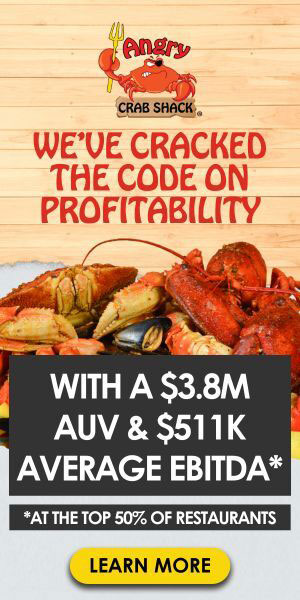Why Europe is a Prime Destination for U.S. Restaurant Franchise Brands

The European market has become increasingly attractive to U.S.-based restaurant franchise brands, driven by diverse growth opportunities and consumer demand. With its blend of mature and emerging markets, rich culinary culture, and expanding urbanization, Europe offers a fertile ground for restaurant brands seeking to extend their global reach.
1. Access to high-potential markets
Europe comprises some of the world's wealthiest and most densely populated countries, including the UK, Germany, France, Italy, and Spain. These nations have strong economies and urban centers with millions of potential customers. American franchise brands can tap into these concentrated markets, leveraging high spending power and a robust demand for varied dining experiences.
Moreover, European cities are cultural melting pots that are increasingly open to international cuisines. This diversity makes it easier for U.S. brands to introduce and popularize their concepts, especially those offering novelty or niche appeal.
2. Rising demand for American concepts
European consumers have long embraced American food culture, including fast-casual dining and quick-service models. Well-known U.S. chains such as Five Guys, Shake Shack, and Chipotle have already demonstrated that American brands can thrive in Europe by adapting to local tastes while maintaining their core identity.
This openness to American dining experiences presents a strategic advantage for U.S. franchises. The familiarity with certain American lifestyle trends—like grab-and-go meals, customizable menus, and comfort food offerings—provides an accessible entry point into European markets.
3. Strategic opportunities for franchising models
Franchising remains a favored growth strategy in Europe, where both master franchise and area development models are widely used. U.S. brands can collaborate with experienced local partners who possess deep market knowledge and established networks. This partnership model reduces risks associated with market entry and accelerates scalability.
Many U.S. brands have successfully used area development agreements to expand across European markets. By granting regional partners exclusive rights to open multiple units, they ensure a balance between operational control and local expertise.
4. Cultural adaptation enhances success
While Europe is an attractive market, success hinges on adapting business models to meet local preferences and regulations. Consumers in countries like Italy or France may expect higher quality ingredients or prefer dining in rather than takeout. Adapting menu offerings, marketing strategies, and customer service styles can significantly boost brand acceptance and customer loyalty.
U.S. franchises that invest in understanding and respecting these nuances typically outperform those that attempt a one-size-fits-all approach. For example, brands can offer localized menu items or collaborate with local suppliers to showcase regional flavors.
5. Opportunities in emerging markets
While Western Europe boasts mature restaurant markets, emerging markets in Eastern and Southern Europe present untapped potential. Countries such as Poland, Hungary, and the Czech Republic have growing middle classes eager to explore global dining options. These markets often have less competition, allowing early entrants to establish a strong foothold and brand recognition.
Additionally, local governments in emerging European markets may offer incentives to attract foreign investment, further reducing the risks associated with entry.
6. Economic and regulatory stability
Europe provides a relatively stable business environment with clear regulations regarding franchising, labor, and food safety. This transparency is reassuring for U.S. franchise operators accustomed to stringent legal frameworks. Regulatory stability enables better long-term planning, making Europe an attractive alternative to other high-risk markets.
Moreover, the European Union (EU) provides a unified economic area, simplifying cross-border operations for brands looking to expand within multiple EU countries. Brands can benefit from streamlined logistics, reduced tariffs, and common standards across many markets.
7. Real estate and infrastructure advantages
Europe's established retail infrastructure and iconic urban landscapes offer numerous high-traffic locations ideal for restaurant operations. City centers, shopping malls, and transport hubs such as train stations and airports provide excellent visibility and foot traffic. Prime real estate in these areas allows brands to quickly capture consumer attention and establish a strong market presence.
With the rise of delivery platforms, even suburban and peri-urban areas have become viable expansion options. U.S. franchises can take advantage of these platforms to serve a broader customer base while reducing their reliance on expensive city-center locations.
8. Learning and innovation opportunities
Expanding to Europe allows U.S. brands to innovate by learning from competitive markets and consumer behavior. Many European cities have highly developed food cultures, which encourage brands to elevate their offerings in quality, presentation, and customer experience. These insights can then be reintegrated into domestic operations, enhancing overall brand performance.
Moreover, partnerships with local entrepreneurs and investors can foster valuable exchange of ideas, promoting long-term innovation and sustainability in business practices.
Europe offers U.S. restaurant franchises a compelling combination of mature markets, high consumer demand, and strategic expansion opportunities. By leveraging strong franchise partnerships, adapting to cultural preferences, and strategically targeting both mature and emerging markets, American brands can achieve sustained success across the continent.
However, to thrive in this complex environment, U.S. brands must prioritize local adaptation and long-term planning. With the right strategy, Europe can become a cornerstone of global growth for ambitious restaurant franchises.
Rebecca Viani is Partner with WhiteSpace Partners, a London-based firm, focused on the development and execution of market entry, franchise development, and acquisition strategies for restaurant brands expanding into Europe and the Middle East.
Share this Feature
Recommended Reading:
| ADVERTISE | SPONSORED CONTENT |
FRANCHISE TOPICS
- Multi-Unit Franchising
- Get Started in Franchising
- Franchise Growth
- Franchise Operations
- Open New Units
- Franchise Leadership
- Franchise Marketing
- Technology
- Franchise Law
- Franchise Awards
- Franchise Rankings
- Franchise Trends
- Franchise Development
- Featured Franchise Stories
| ADVERTISE | SPONSORED CONTENT |








 The franchise listed above are not related to or endorsed by Franchise Update or Franchise Update Media Group. We are not engaged in, supporting, or endorsing any specific franchise, business opportunity, company or individual. No statement in this site is to be construed as a recommendation. We encourage prospective franchise buyers to perform extensive due diligence when considering a franchise opportunity.
The franchise listed above are not related to or endorsed by Franchise Update or Franchise Update Media Group. We are not engaged in, supporting, or endorsing any specific franchise, business opportunity, company or individual. No statement in this site is to be construed as a recommendation. We encourage prospective franchise buyers to perform extensive due diligence when considering a franchise opportunity.